Question And Answer
Publications
Articles, publications, books, tools and multimedia features from the U.S. Institute of Peace provide the latest news, analysis, research findings, practitioner guides and reports, all related to the conflict zones and issues that are at the center of the Institute’s work to prevent and reduce violent conflict.
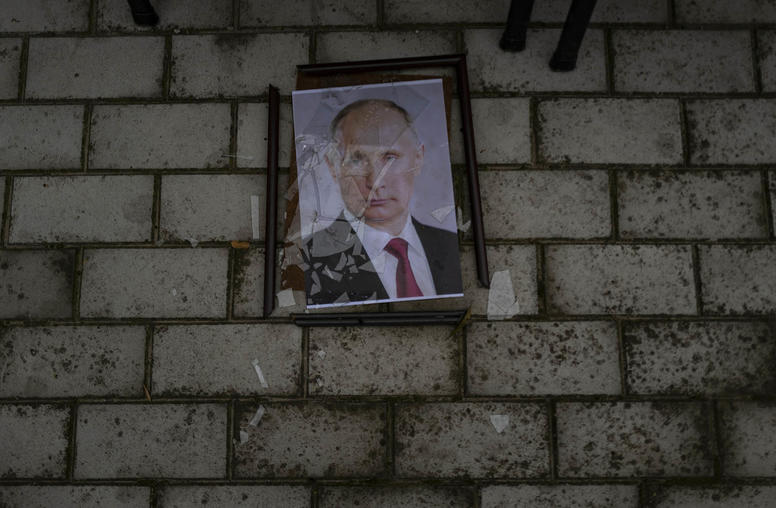
How the ICC’s Warrant for Putin Could Impact the Ukraine War
The International Criminal Court (ICC) announced last Friday that it had issued arrest warrants for Russian President Vladimir Putin and Presidential Commissioner for Children’s Rights Maria Lvova-Belova. According to a statement issued by the ICC, Putin and Lvova-Belova are alleged to have committed the war crimes of “unlawful deportation of population (children) and that of unlawful transfer of population (children) from occupied areas of Ukraine to the Russian Federation” beginning in at least February 24, 2022. USIP’s Lauren Baillie, Heather Ashby and Mary Glantz discuss the impacts of these warrants on Putin and on the war in Ukraine.
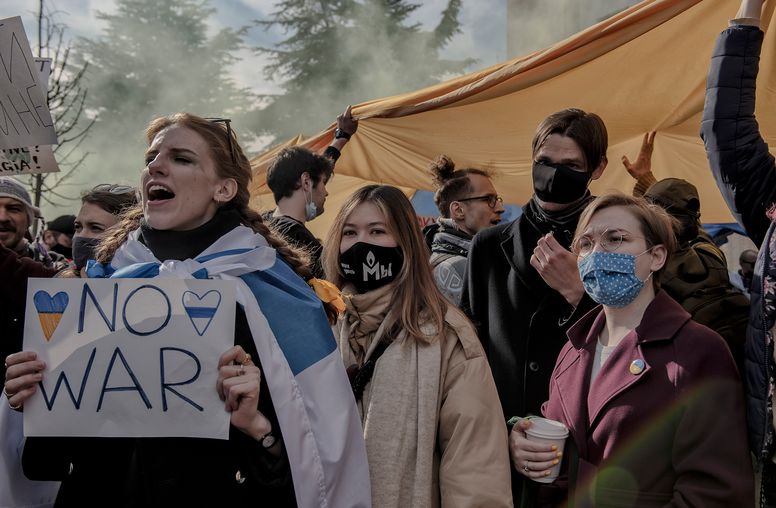
Why Georgians Are Protesting Against Russian Influence
Earlier this month, the ruling Georgian Dream party withdrew proposed “foreign agent” bills that have been a source of contestation in the country, particularly over the last year. A diverse coalition of Georgians hit the streets to protest these bills, which they said would be a blow to Georgia’s democracy and undercut its efforts to be a candidate for European Union membership. Just as Ukrainians are resisting Russia’s illegal invasion, these Georgian protesters fear growing Russian influence in their country, which is already partly occupied by Russia. The bills’ collapse in the Georgian parliament revealed the power of civil society resistance and the continued fight within the country for European integration and democracy.
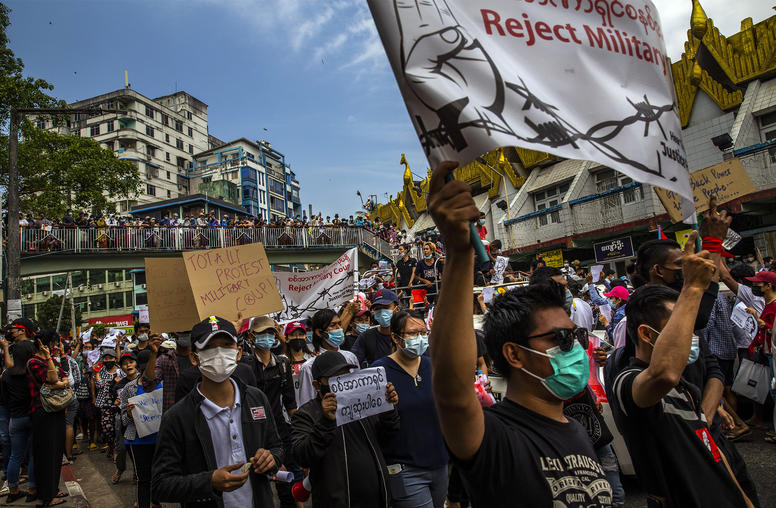
Support for Myanmar’s Junta Only Prolongs the Country’s Conflict
Myanmar’s coup regime, whose principal strategy for dealing with the country’s resistance movement is blunt, unrelenting brutality, benefits from three misconceptions prevalent in the international community: First, that consolidation of the military’s power is essentially inevitable; second, that absence of the generals’ regime would lead to a power vacuum and failed state; and third, that long-term military control is preferable to the status quo and would lead to stability.

A Threshold Alliance: The China-Pakistan Military Relationship
Geopolitical shifts in South Asia over the past decade, driven by sharper US-China competition, a precipitous decline in China-India relations, and the 2021 withdrawal of US forces from Afghanistan, have pushed the Chinese and Pakistani militaries closer together. The countries’ armies and navies are increasingly sharing equipment, engaging in more sophisticated joint exercises, and interacting more closely through staff and officer exchanges. Yet, as this report concludes, a full China-Pakistan alliance is not inevitable, as Chinese missteps and other sources of friction could slow its consummation.
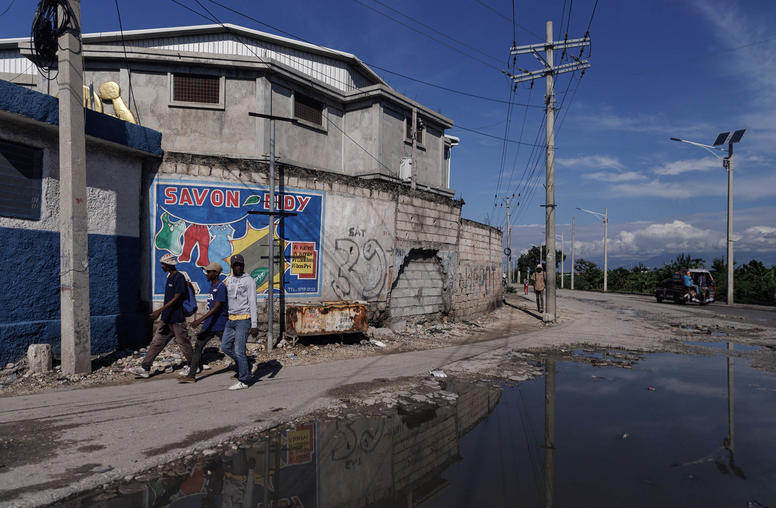
Have Haitians Finally Found the Formula for Moving Forward?
The headlines from Haiti have been so bad for so long that few get the world’s attention anymore. It seems like nearly every day there are stories of dozens being killed in the country’s capital or of the U.S. Coast Guard stopping hundreds of Haitian migrants from reaching U.S. shores. Then there are the more ominous headlines that say war or even a Rwanda-style massacre are approaching amid the countries “nightmarish conditions.” But at the end of last year, an underreported development could help put the country on a new path, injecting a glimmer of hope despite much pessimism.

Les Haïtiens ont-ils enfin trouvé la formule pour avancer ?
Les gros titres d'Haïti ont été si mauvais pendant si longtemps que peu attirent plus l'attention du monde. Il semble que presque chaque jour, il y a des histoires de dizaines de personnes tuées dans la capitale du pays ou de la Garde côtière américaine empêchant des centaines de migrants haïtiens d'atteindre les côtes américaines. Ensuite, il y a les titres les plus inquiétants qui disent que la guerre ou même un massacre à la rwandaise s’approchent parmi les « conditions cauchemardesques » du pays. Avec la situation d'Haïti apparemment plus inextricable que jamais, certains observateurs se sont demandé si le monde est tout simplement fatigué d'essayer d'aider Mais à la fin de l'année dernière, un accord peu médiatisé a été forgé par les Haïtiens - injectant une lueur d'espoir que le pays pourrait emprunter un nouveau chemin.
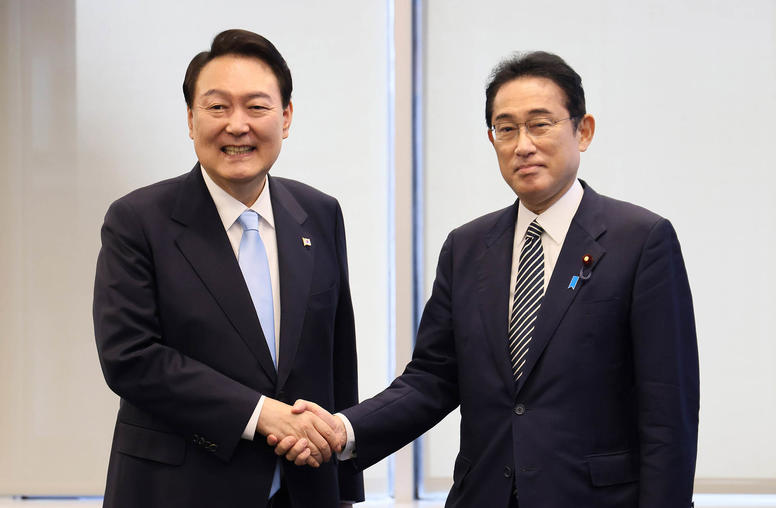
What’s Behind Japan and South Korea’s Latest Attempt to Mend Ties?
The meeting between South Korean President Yoon Suk Yeol and Japanese Prime Minister Fumio Kishida earlier this month — the first bilateral summit between South Korean and Japanese leaders in over a decade — was welcomed by both sides as a major step toward renewing relations. Despite ample common cause on issues such as regional security and economic growth, ties between the two countries have been strained in recent years over unresolved disputes stemming from Japan’s colonial occupation of Korea.

Keith Mines on Securing Haiti’s Political Future
President Biden recently asked Canada to lead a security force to stabilize Haiti. While neither side “wants to do this as something that just props up the [interim] government,” a lack of action “doesn’t mean 11 million people go away. It just means we’re not paying attention,” says USIP’s Keith Mines.
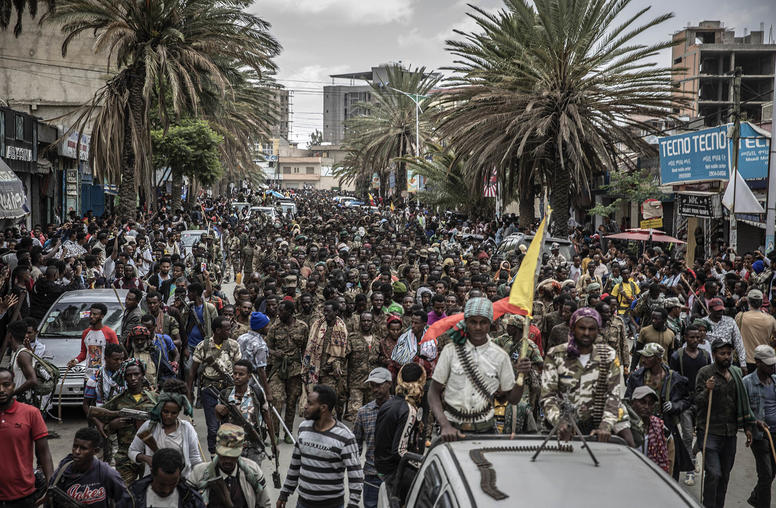
Peace for Ethiopia: What Should Follow Blinken’s Visit?
Secretary of State Antony Blinken’s talks in Ethiopia and his announcement of new U.S. aid this week advance vital steps for building peace in the country and greater stability in East Africa. Yet those tasks remain arduous and will require difficult compromises on all sides in Ethiopia’s conflicts. U.S. and international policymakers face a tough calculation over how to mesh critical goals: restoring full trade and economic assistance to help Ethiopia meet its people’s needs while also pressing all sides to advance justice and reconciliation to address the atrocities committed and damage caused during the war.
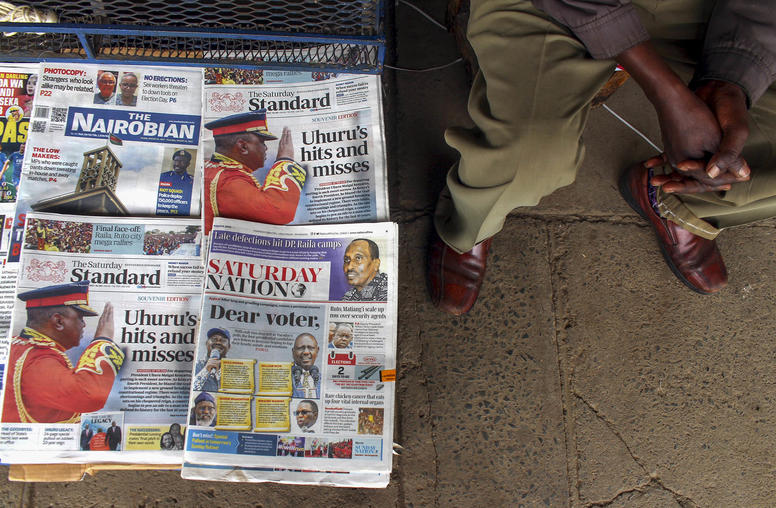
China’s Media Propaganda in Africa: A Strategic Assessment
Over the last decade, partnerships with developing countries have become central to China’s geostrategic objectives. In Africa specifically, China has made significant investments to secure favorable media coverage to promote a positive view of China, to counter the influence of the United States, and to assert and normalize China’s territorial claims over Taiwan, the South China Sea, and other contested areas. This report examines China’s investments in Africa’s media sector, assesses their effect, and makes recommendations for how the United States can respond to China’s influence campaigns.